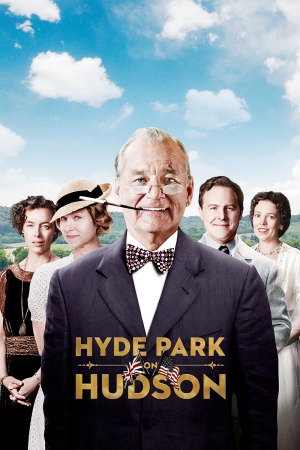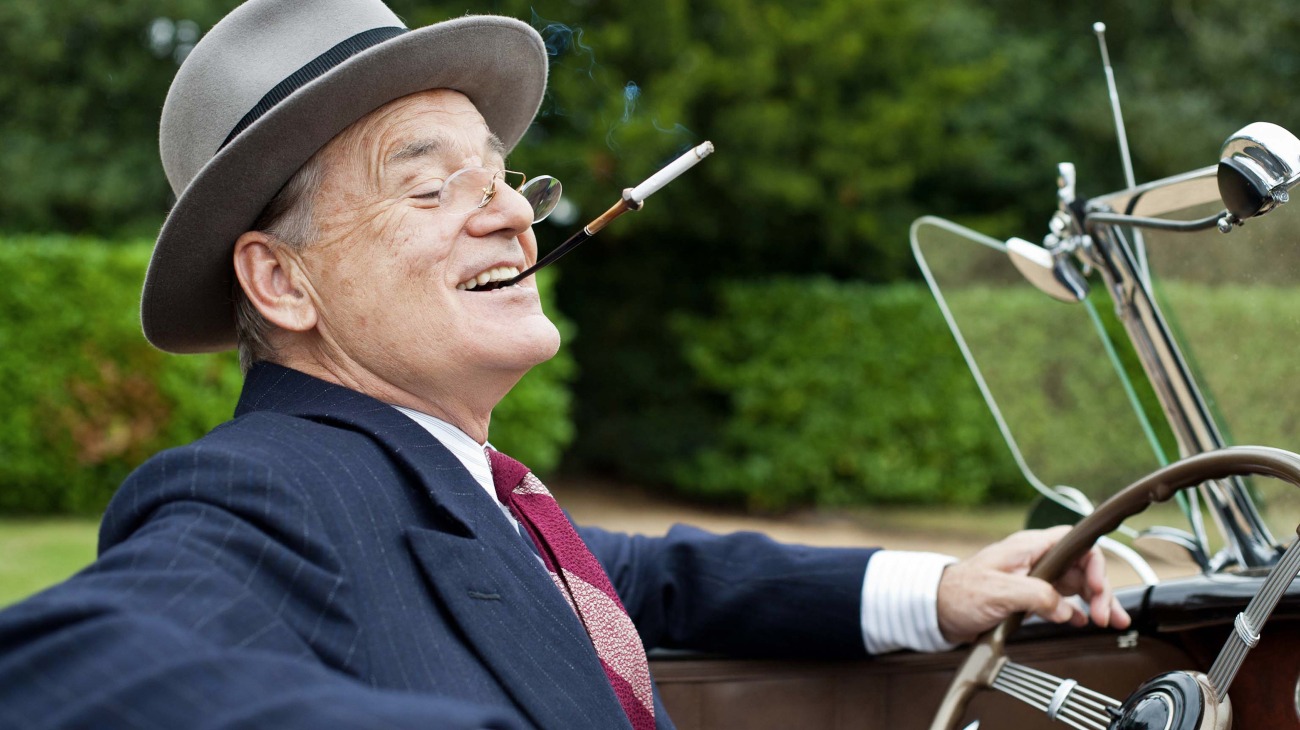
All the president's women
One of the agreed-upon narratives of the closing of the 2012 movie year is that, for once, the Oscarbait is really good: not that most people love everything, but damn near everybody loves something, whether it's the old-fashioned political thrills of Argo, the new-fashioned iciness of Zero Dark Thirty, the austere lushness of Lincoln, the emotionally bruising lushness of Les Misérables. Movies that, in the normal order of things, would be met with some kind of cynicism by the teeming hordes of the internet, at least, are getting waved on through with terrific reviews and genuine passion.
Thankfully, then, here comes Hyde Park on Hudson to restore a sense of sanity to the world. The film is an almost perfect storm of awards-hunting impulses: it's yet a third goddamn movie with King George VI of England as a significant character, one year after W./E. and two after Best Picture winner The King's Speech; it's set during, and largely concerned with, the run-up to World War II; and it stars Bill Murray as President Franklin Delano Roosevelt, a casting decision in which the phrase "Oscar nomination" undoubtedly cropped in several conversations between several different people. It sounds like it was laboratory-produced for just the purpose of courting voters, and it is a fucking piece of shit.
Our guide through this story is Margaret "Daisy" Suckley (Laura Linney), one of Roosevelt's innumerable distant cousins, and according to rumor, his mistress. Though in the film's telling, it would appear that every woman in upstate New York is also one of FDR's mistresses, so it's not that big a deal. Anyway, the film opens with the president's mother (Elizabeth Wilson) and Daisy's aunt (Eleanor Bron) apparently conspiring to whore the girl out to Franklin when he's down in the dumps one day. The two become nigh-inseparable after that, and thus it is that Daisy is invited to an unbelievably significant meeting between the president and the British king (Samuel West) and Queen Elizabeth (Olivia Colman), the first time that a reigning British monarch visited the United States, as the two leaders attempt to shore up Anglo-American relations in preparation for an impending European war that, at this time, many American citizens would still like to stay as far away from as possible. The festivities are to be held at Mother Roosevelt's estate, Hyde Park on Hudson, and thus it is that she fusses around trying to make sure the royals are as well-treated as possible, every inch the old-money blueblood, while ascerbic daughter-in-law Eleanor (Olivia Williams) generally tries to do the opposite, insisting on the most egalitarian, casual experience possible. And thus are hot dogs on the menu.
Those fucking hot dogs! Screenwriter Richard Nelson is goddamn nuts about those hot dogs - he uses them at every possible turn to hang another sitcommy dialogue scene about how the stiff Brits can't imagine eating hot dogs - Queen Elizabeth has no discernible character traits whatsoever, except that apparently she'd rather be gang-raped by Göring and Himmler than be served motherfucking hot dogs by the Roosevelts. It's not funny the first time, and the tenth time, I just wanted to set fire to things. This, alas, is the movie's idea of both psychology and symbolism: who will or won't eat a hot dog, and why.
It's an excessive element of a film that gets absolutely everything wrong at the script level: lines of dialogue that horribly fumble the attempt to make these famous historic figures seem like regular human beings, next to Daisy's endless narration, much of it redundant or pointless, much of it painfully darling ("I knew that we were now not just fifth cousins, but very good friends" she says without a whisper of sardonic humor or irony, seconds after giving FDR the most tastefully PG-13 handjob on record). The focus is very emphatically on gossip and innuendo and not on politics or the great events of world history, which is perfectly fair: but then, the focus of that gossip is so endlessly tittering and juvenile and prurient in the fustiest way, as to seem hopelessly old-fashioned not just for a movie made in 2012, but for a movie made in the very same time period it depicts. It has a child's fascination with imagining presidential naughtiness, and a tiresomely winking "is she is or is she ain't?" approach to Eleanor Roosevelt's sexuality, and not a single one of the characters is interesting in any way because of it: these aren't people but ribald punchlines.
Certainly, the actors can't do much with it for all that any of them try: Linney is uncharacteristically bad, finding a prim, "I am a faded society lady and it's the '30s" tone for her voiceover, but playing the actual scenes like she had no idea it's not the 21st Century, but Daisy is such a non-entity for someone who has the biggest part - her response to learning of Franklin's tomcatting is strictly that of a movie character, not a flesh-and-blood person, not even one raised up in a chauvinistic word - that Linney can hardly be blamed for checking out. Or over here, we have Murray's desperation bid for awards: resembling FDR not in the least, but not himself either, Murray is just some random patrician without much of a personality besides genial condescension and a wit that characters in the movie find infinitely more amusing than it actually is. It's not a bad performance, mostly just a sleepy one. The film does not care about the other characters, and so I shall not either, except to bemoan the waste of a cast.
All this is directed by Roger Michell, who used to make interesting, semi-complicated movies, and doesn't anymore. Hyde Park on Hudson thinks of itself as a spry comic drama with lots of wry asides; the fact that none of them are well-written hurts, but even more it hurts that Michell adopts such a suffocating aesthetic of closed-off frames and underlit everything: it is a gloomy, stuffy movie, and while it is about stuffy people, I am absolutely positive that it wasn't meant to read that way. And so instead of skipping along, the movie plods: instead of opening up these people, it pins them under glass and watches emptily as they wriggle.
There is one good scene, and it's uncoincidentally the least-typical in the film, concerning as it does the work of politicians and governance: Franklin and King Bertie chatting, late at night, about the fears that come with being a world leader; in one particularly winning moment, the president suggests, placidly, that his polio and the king's stutter are their crosses to bear, the reason they are able to lead their countries, because they both know how to triumph. It is a shockingly delicate, well-acted moment, moving and likable and human. So unfortunately, I am not able to write the movie off as an utter waste.
2/10






